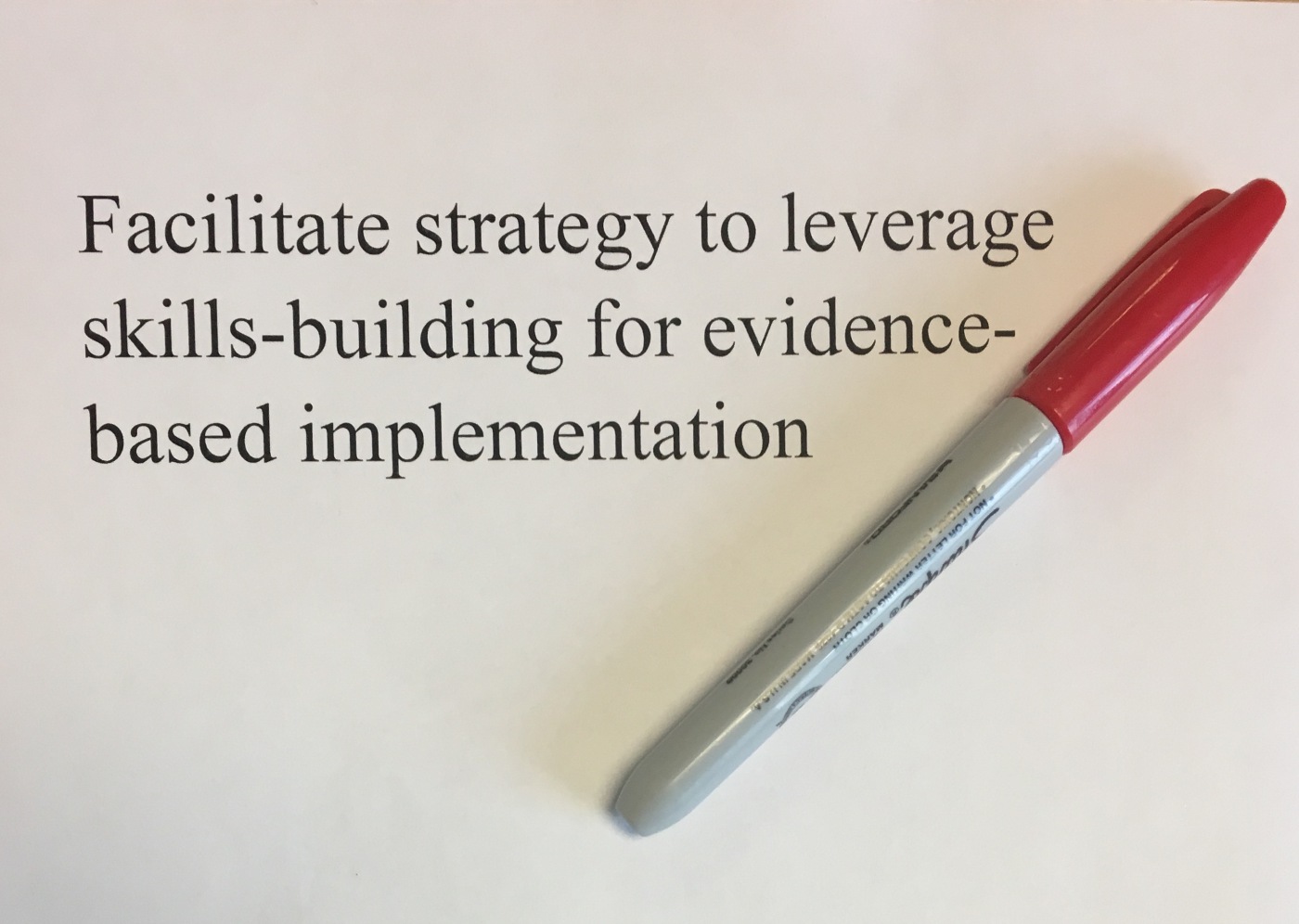The skills-building workshop will be facilitated to enhance effective capacity strengthening and leverage existing resources to implement evidence-based initiatives.
Have you read sentences like that before? Bet you have, and if you are anything like me you have probably written a few of them, too. This is awful writing, and not just because it is full of jargon (and the passive voice! It kills me!) but because the jargon masks muddled thinking. Sometimes we use jargon when we don’t actually know what we want to say. Jargon can be a crutch.
Jargon does have a purpose – it lets us speak to other people like us in shorthand. There is great utility in that: using precise, mutually understandable language in a technical discussion is helpful. The problem is that we let jargon creep into our speech and our writing when we are speaking to people who aren’t in our little in-group, and then they can’t understand us. But there is another, more pernicious outcome of jargon: we can forget what it actually means, and we can begin to use lots of words to say nothing at all.
How to know if a word is jargon? Pretty much every word in the sentence above is jargon – skills-building, workshop, facilitate, enhance, capacity strengthening, leverage, resources, implement, evidence-based, initiatives. Jargon, each and every one. Why? Because the word no longer has a plain meaning, but a context-specific meaning that someone who isn’t a co-specialist wouldn’t necessarily understand.
Want an example? Growing up, I thought my mom must be really, really good with a hammer and nails (though she always left the woodworking to my dad) because every couple of months she would disappear and go to a workshop. They seemed very important and tiring, these workshops. I was in high school before I understood that workshop just meant a group of people having a long meeting. Her work seemed much less interesting to me after that.
The CDC has a handy little glossary of jargon giving examples of jargon used in public health communication providing alternate, jargon-free sentences. That guide links to something called the Plain Writing Act which essentially says that government communication must be in words people can understand. Of course, the law isn’t itself written in words the public can necessarily understand, but okay. I was also amused to see that the website for the Plain Writing Act has a link for “OMB final PL guidance.” Sweet.
Using less jargon doesn’t just make our writing nicer to read. It can also force us to unpack the assumptions built into jargon and think about what we actually want to say. Take my example of “workshop” above. In a proposal I could write “conduct strategy design workshop with stakeholders,” and no one would bat an eye. But I could also write something like “the team leader will present data to project staff from around the country and set new goals based on those data. The group will then propose and discuss ways to meet those goals in the coming year and will document the plans.” It took me 2 seconds to type out “conduct strategy design workshop with stakeholders,” and 2 minutes to think through and write up the two sentences below it. That is the beauty and the danger of jargon; jargon is fast, but it leaves what will actually happen unsaid.
I realize we won’t do away with jargon, and that is fine. But I would like us to think about words, and what they mean, and whether there is a plain language alternative. And if you sit at your computer, wondering in what other way you can say you’ll “leverage resources,” and you can’t think of one, realize it may be because you actually have no idea yet how you’ll “get more funding.” The answer probably isn’t by facilitating another workshop with stakeholders.

Great post! This would be a good exercise for a StratCom meeting someday!
LikeLike
Thanks, Joanna! We could try to go an entire meeting with zero jargon…I dunno if we’d survive.
LikeLike
Amen! One challenge I have found is trying to researchers and academics to buy the idea that writing in more simple language and removing jargon could be a good thing. Such an exercise would be good for researchers as well.
LikeLike
It’s true! I think we can be afraid that if we don’t use accepted jargon people will think we sound less legit.
LikeLike